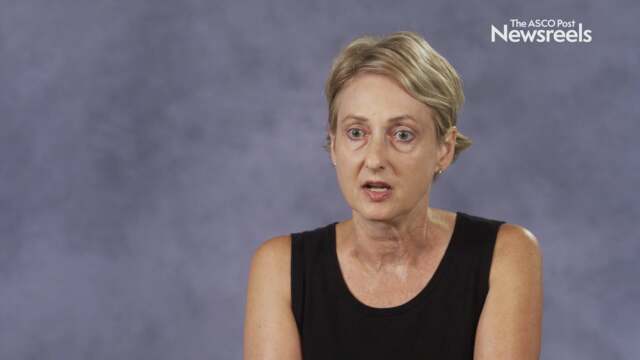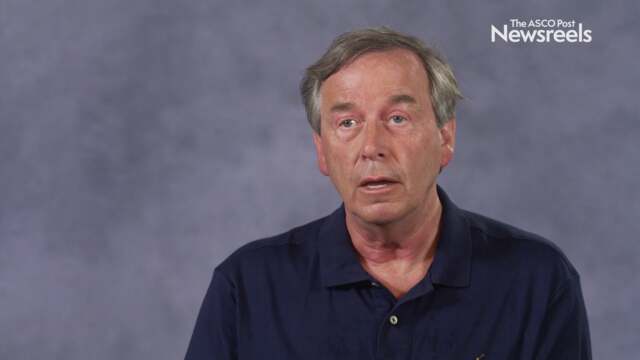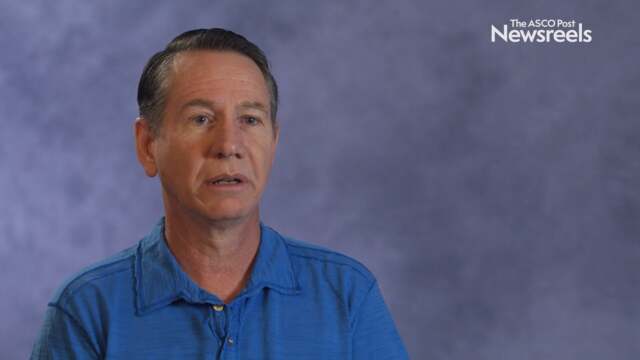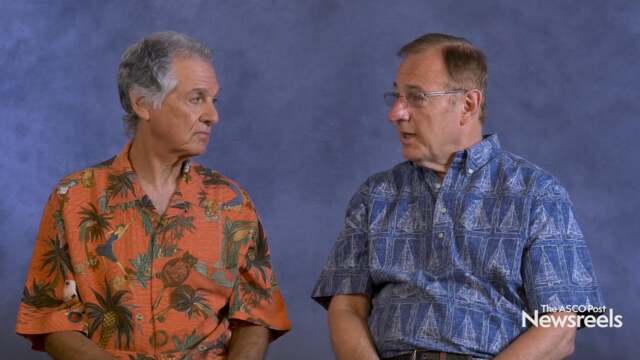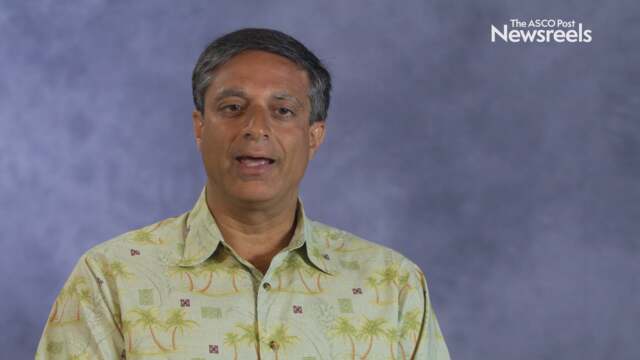Steven M. Horwitz, MD, on CD 30+ PTCL Subtypes: Treatment Update
Pan Pacific Lymphoma Conference 2018
Steven M. Horwitz, MD, of Memorial Sloan Kettering Cancer Center, discusses aggressive subtypes of peripheral T-cell lymphoma and the coming data that may help clarify what could be the most effective treatments.
Laurie H. Sehn, MD, MPH, of the British Columbia Cancer Centre for Lymphoid Cancer, discusses the challenges of treating high-grade B-cell lymphoma in older patients and those with comorbidities. Several strategies have been devised, but more research is needed as well as more options for novel therapies.
John G. Gribben, MD, DSc, of the Barts Cancer Institute, discusses how understanding the role of the tumor microenvironment can help identify treatment targets, including combination therapies, and improve outcome for patients with indolent lymphomas.
Stephen M. Ansell, MD, PhD, of the Mayo Clinic, discusses the efficacy of PD-1 blockade in Hodgkin lymphoma, new findings related to PD-1 therapy, current combination approaches, and future treatments.
Bruce D. Cheson, MD, of Georgetown University Hospital, and Richard I. Fisher, MD, of Fox Chase Cancer Center, discuss ways to incorporate PET and CT scanning into standard of care for and research studies on lymphoma.
Sagar Lonial, MD, of the Emory University School of Medicine, discusses the importance of planning for relapse based on the treatment a patient has received, new targets for refractory myeloma, and the role of cellular therapy.
